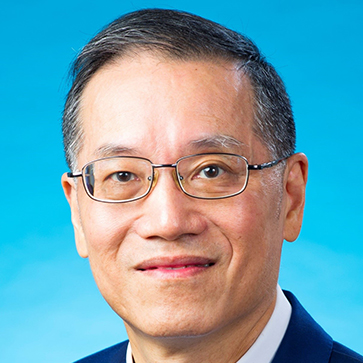PROGRAM
CIRC 2022 Full Program PDF Download
Day 1 23 May (Monday) 2022
|
Hong Kong, HKT (UTC +8) | 09:00 – 09:20 London, BST (UTC +1) | 02:00 – 02:20 New York, EDT (UTC -4) | (22 May) 21:00 – 21:20 Los Angles, PDT (UTC -7) | (22 May) 18:00 – 18:20 |
Opening: Welcoming to CIRC 2022 |
|
Hong Kong, HKT (UTC +8) | 09:30 – 10:50 London, BST (UTC +1) | 02:30 – 03:50 New York, EDT (UTC -4) | (22 May) 21:30 – 22:50 Los Angles, PDT (UTC -7) | (22 May) 18:30 – 19:50 |
Keynote Speech: Adding Evidence-based Evaluation (EbE) to Research on Chinese Internet Research

Jonathan Jian-Hua Zhu, City University of Hong Kong
Abstract
Bio |
|
Hong Kong, HKT (UTC +8) | 11:00 – 12:20 London, BST (UTC +1) | 04:00 – 05:20 New York, EDT (UTC -4) | (22 May) 23:00 – (23 May) 00:20 Los Angles, PDT (UTC -7) | (22 May) 20:00 – 21:20 |
Panel 1: Chinese-language Fact-checking in the Digital Age
Chair: Stephanie Tsang, Hong Kong Baptist University
|
|
Hong Kong, HKT (UTC +8) | 12:20 – 13:20 London, BST (UTC +1) | 05:20 – 06:20 New York, EDT (UTC -4) | (23 May) 00:20 – 01:20 Los Angles, PDT (UTC -7) | (22 May) 21:20 – 22:20 |
Lunch Break |
|
Hong Kong, HKT (UTC +8) | 13:30 – 14:50 London, BST (UTC +1) | 06:30 – 07:50 New York, EDT (UTC -4) | (23 May) 01:30 – 02:50 Los Angles, PDT (UTC -7) | (22 May) 22:30 –23:50 |
Panel 2: Internet Technology, Environment, and Health
Chair: Jingyuang Wang, Hong Kong Baptist University
|
|
Hong Kong, HKT (UTC +8) | 15:00 – 16:20 London, BST (UTC +1) | 08:00 – 09:20 New York, EDT (UTC -4) | (23 May) 03:00 – 04:20 Los Angles, PDT (UTC -7) | (23 May) 00:00 – 01:20 |
Panel 3: Global Perspectives on Chinese Internet
Chair: Daya Thussu, Hong Kong Baptist University
|
|
Hong Kong, HKT (UTC +8) | 16:30 – 17:50 London, BST (UTC +1) | 09:30 – 10:50 New York, EDT (UTC -4) | (23 May) 04:30 – 05:50 Los Angles, PDT (UTC -7) | (23 May) 01:30 – 02:50 |
Panel 4: The Digital Silk Road Between Internet Sovereignty and Globalization Imperatives
Chair: Elisa Oreglia, King’s College London, UK
|
|
Hong Kong, HKT (UTC +8) | 18:00 – 19:20 London, BST (UTC +1) | 11:00 – 12:20 New York, EDT (UTC -4) | (23 May) 06:00 – 07:20 Los Angles, PDT (UTC -7) | (23 May) 03:00 – 04:20 |
Panel 5: Provincializing Platform Economies: The (Re)making of Power Dynamics and Social Order in China
Chair: Xiaofei Han, Carleton University, Canada
|
Day 2 24 May (Tuesday) 2022
|
Hong Kong, HKT (UTC +8) | 09:30 – 10:50 London, BST (UTC +1) | 02:30 – 03:50 New York, EDT (UTC -4) | (23 May) 21:30 – 22:50 Los Angles, PDT (UTC -7) | (23 May) 18:30 – 19:50 |
Panel 6: Internet and Digital Economy
Chair: Vincent Huang, Hong Kong Baptist University
|
|
Hong Kong, HKT (UTC +8) | 11:00 – 12:20 London, BST (UTC +1) | 04:00 – 05:20 New York, EDT (UTC -4) | (23 May) 23:00 – (24 May) 00:20 Los Angles, PDT (UTC -7) | (23 May) 20:00 – 21:20 |
Panel 7: State, Regulation, and Society
Chair: Xinzhi Zhang, Hong Kong Baptist University
|
|
Hong Kong, HKT (UTC +8) | 12:20 – 13:20 London, BST (UTC +1) | 05:20 – 06:20 New York, EDT (UTC -4) |(24 May) 00:20 – 01:20 Los Angles, PDT (UTC -7) | (23 May) 21:20 – 22:20 |
Lunch Break |
|
Hong Kong, HKT (UTC +8) | 13:30 – 14:50 London, BST (UTC +1) | 06:30 – 07:50 New York, EDT (UTC -4) | (24 May) 01:30 – 02:50 Los Angles, PDT (UTC -7) | (23 May) 22:30 –23:50 |
Panel 8: Digital Platform, Content, and Culture
Chair: Dandan Liu, Hong Kong Baptist University
|
|
Hong Kong, HKT (UTC +8) | 15:00 – 16:20 London, BST (UTC +1) | 08:00 – 09:20 New York, EDT (UTC -4) | (24 May) 03:00 – 04:20 Los Angles, PDT (UTC -7) | (24 May) 00:00 – 01:20 |
Panel 9: Cross-Platform Analyses of Chinese Internet
Chair: Weiyu Zhang, National University of Singapore
|
|
Hong Kong, HKT (UTC +8) | 16:30 – 17:30 London, BST (UTC +1) | 09:30 – 10:30 New York, EDT (UTC -4) | (24 May) 04:30 – 05:30 Los Angles, PDT (UTC -7) | (24 May) 01:30 – 02:30 |
Closing: Student Paper Award Ceremony |




